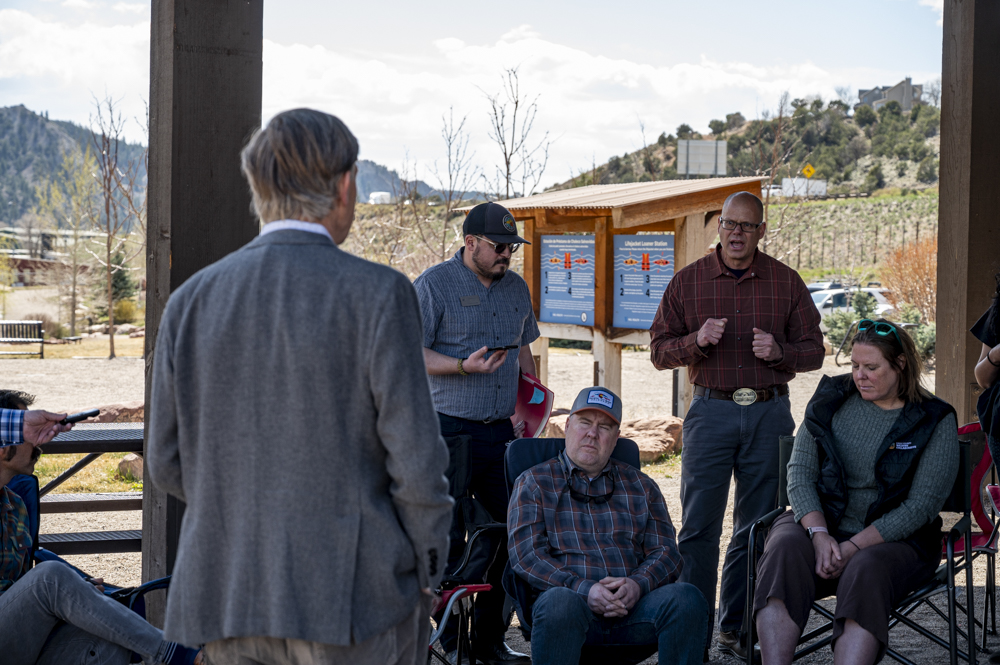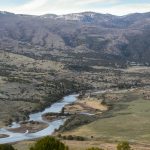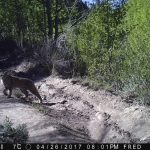Bipartisan group of Western Slope lawmakers warn of ‘serious risk’ of Forest Service cuts, urge feds to reverse decision
Lawmakers whose districts include the most visited National Forest in the country — the White River — say agency is critical to managing water, recreation and more

Ben Roof/Special to the Daily
With the summer tourism season on the horizon, a bipartisan group of Western Slope state lawmakers is warning of “serious risk” to Colorado’s public lands if U.S. Forest Service cuts aren’t reversed.
In an April 2 letter to United States Department of Agriculture Secretary Brooke Rollins, lawmakers called for thousands of recently-fired Forest Service staff to be rehired, saying the cuts would “severely harm the invaluable services that these forests provide.”
The letter was signed by Colorado House Speaker Julie McCluskie, D-Dillon; Reps. Meghan Lukens, D-Steamboat Springs; Elizabeth Velasco, D-Glenwood Springs; and Katie Stewart, D-Durango; as well as Sens. Dylan Roberts, D-Frisco, and Marc Catlin, R-Montrose.
The outcry comes after President Donald Trump’s administration in February fired over 3,400 Forest Service employees across the country, including more than 150 in Colorado, though a handful of positions were later restored. That same month, the top official for Colorado’s White River National Forest — the most visited national forest in the country — took a federal buyout.
The Forest Service oversees more than 24 million acres of land in Colorado, which lawmakers say is critical to managing water, recreation, wildfire prevention, wildlife and ecosystem preservation.

Support Local Journalism
“A reduction to the (Forest Service) workforce puts all of this at risk, at a time when prioritization of our public lands is absolutely critical,” the letter states.
The letter states that mountain snowpack runoff — the majority of which flows from national forest lands on Colorado’s Western Slope — supplies three-quarters of the water supply for the state’s four major river systems.
“The surface water from these national forestlands supports drinking water needs, agriculture, industrial uses, recreation, and habitat for aquatic life throughout the west,” the letter states. “The potential is great for national forest management to positively or negatively influence the reliability of these water supplies, both in quantity and quality.”
Wildfire management is also a key part of Forest Service staff’s work, with the letter listing off several programs and partnerships that support aerial surveys, restoration and management projects and field data collection.
Public lands also remain an economic powerhouse.
A report last year found that outdoor recreation generated $65.8 billion in economic output for the state, and recreationists in Colorado spent over $52.1 billion on trips and equipment in 2023. Additionally, outdoor recreation created $11.2 billion in local, state and federal tax revenue and over 400,000 jobs, representing 12.5% of the state’s labor force.
It comes as public lands face increased pressure from visitation, which ballooned during the COVID-19 pandemic.
White River National Forest recorded a nearly 50% increase in visitation between 2017 and 2022, going from 12.5 million visitors per year to 18.4 million. The 2.3-million-acre forest, which runs through broad swaths of the central and northern mountains, encompasses 11 ski resorts, eight wilderness areas, several 14ers and popular destinations like Hanging Lake and the Maroon Bells-Snowmass Wilderness.
“The maintenance of the White River National Forest and Colorado’s public lands requires significant investment and dedication,” the letter states. “We respectfully request the restoration of employment for all recently fired (Forest Service) workers, and urge continued support for the (Forest Service) in Colorado and throughout the nation.










